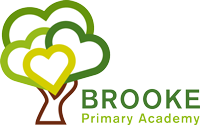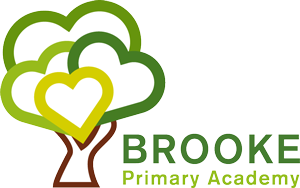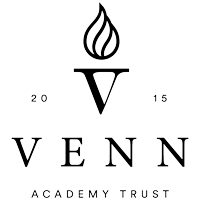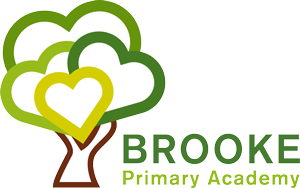
A Venn Academy Trust School
– Together we will…
Venn is a pioneering academy trust, committed to building educational environments where all pupils are inspired to become lifelong learners who achieve the very highest standards possible.
Collaborating with all partners, the Trust works with its unique settings to create world class learning experiences for all.

HLHL
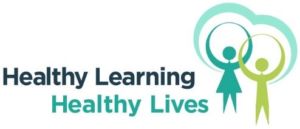
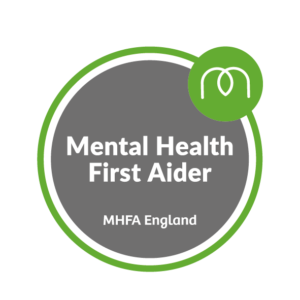
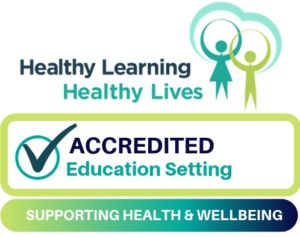
In January 2018, Healthy Learning, Healthy Lives (HLHL) replaced the Healthy Schools programme in Doncaster.
Vision
Health and well-being for all children at Brooke Primary Academy.
Emotional Health and Wellbeing
Intent
At Brooke Primary Academy we would like all children to be healthy and happy. We would like all children to be able to express their emotions and to be able to deal with their emotions in a positive way. We would like all children to be able to build positive relationships. If children have good mental health is will help them develop socially, emotionally, mentally and physically.
Implementation
Emotional health is covered through our PSHE scheme of work (Jigsaw) and interventions that we have got in place in school.
The interventions are called:
• Horrizons- which looks at dealing with the loss of someone special to them, either by death or separation.
• Lego Group- is aimed at building friendships, been able to work within a small group and communication.
• Bags of Character- is a program that looks at dealing with emotions, team building, dealing/managing conflict and building self-esteem for individuals.
Impact
When children leave Brooke we want them to:
• Feel happy and positive about themselves
• Enjoy life
• Learn well
• Have healthy relationships with family and friends
• Can manage own emotions
• Be able to cope with life’s challenges
Healthy Eating
In addition to the intent, implementation and impact, healthy eating is taught through our PSHE Jigsaw scheme, Design and Technology: Nutrition and Science Years 2-6.
Intent
• To involve the whole community in developing and maintaining healthy eating and drinking habits.
• To have pleasant and sociable dining experience which enhances the social development of all children.
• To encourage a balanced diet.
• To encourage fluid intake with an easily accessible water supply throughout the day.
• To take into account and accommodate dietary requirements.
• To ensure high standards of hygiene amongst the children.
• To develop healthy eating habits that will last a lifetime.
Implementation
• We encourage parents and carers to pack a healthy packed lunch for their child/ children.
• We encourage all children to bring a water bottle to school every day.
• We encourage the children to wash their hands numerous times through out the day and have hand sanitiser throughout school.
• We encourage the children to eat a dinner in school provided by Dolce which provides a healthy, balanced meal to the school.
• We take into account and accommodate dietary requirements.
Impact
• Improvement in children’s educational outcomes and their health and wellbeing outcomes.
Physical Activity
Please see the PE section of the school website.
PSHE
Please see the PSHE section of the school website.
WOW
We encourage our pupils to travel actively to school. WOW is a pupil-led initiative where children self-report how they get to school every day using the interactive WOW Travel Tracker. If they travel sustainably (walk, cycle or scoot) once a week for a month, they get rewarded with a badge.
The launch video explains what WOW is: WOW 2021/22 launch video on Vimeo.
If you would like to find out more about WOW :livingstreets.org.uk/wow.
Useful Websites
• https://www.healthylearningdoncaster.co.uk/parents
• https://www.bbc.co.uk/bitesize
• https://www.nhs.uk/live-well/eat-well/
• https://www.brushdj.com/
• https://www.nhs.uk/live-well/eat-well/the-eatwell-guide/
• https://www.nhs.uk/change4life/about-change4life
• https://www.modeshiftstars.org/
• http://www.schoolfoodplan.com/wp-content/uploads/2015/01/School-Food-Standards-Guidance-FINAL-V3.pdf
Further information and resources
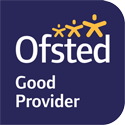
Governance and Leadership: Trustees and governors are skilled and committed, regularly visiting the school and maintaining an accurate picture of its operations to ensure continued improvement.

Support for SEND: The school effectively identifies and supports pupils with special educational needs and/or disabilities (SEND), involving parents in the assessment process and adapting lessons to help these pupils build new knowledge.

Promotion of Values: Pupils learn about diversity and British values through various activities and demonstrate positive attitudes and respect for others. The school also encourages community involvement, such as the choir singing in residential homes and helping at the local food bank.

Positive Behaviour: Changes in how behaviour is managed have helped pupils reflect on their feelings and make better choices. This has resulted in positive behaviour during lessons and playtimes.

Reading and Phonics: The school is committed to ensuring all pupils learn to read. Effective training and support for teachers, along with appropriate reading materials and catch-up sessions, help pupils read accurately and confidently.

Early Years Provision: The early years setting promotes positive relationships and collaboration among children. Adults model effective communication and use assessment well to engage children in their learning.

Safeguarding: The school has effective safeguarding arrangements, creating an open and positive culture that prioritises pupils’ interests.

High Expectations and Progress: The school sets high expectations for all pupils, which are being met. Parents appreciate the support and information provided by the staff and are pleased with the progress their children make.

Anti-Bullying: Pupils respect each other, believe in the school’s values, and feel confident that any issues, including bullying, would be resolved quickly by adults.

Extracurricular Activities: There is a wide range of clubs available, such as football, rugby, forest school, and choir, which help develop pupils’ talents and interests.

Overall Effectiveness: The school is rated “Good” in all categories, including quality of education, behaviour and attitudes, personal development, leadership and management, and early years provision.

Curriculum and Learning: The curriculum is well-considered, building on previous learning to deepen understanding. While assessment systems need improvement, the school’s overall approach helps in identifying and supporting pupils’ needs.

School Environment: The academy is described as a warm and welcoming place where pupils feel safe and happy. Respectful and positive relationships are central to the school’s environment.
